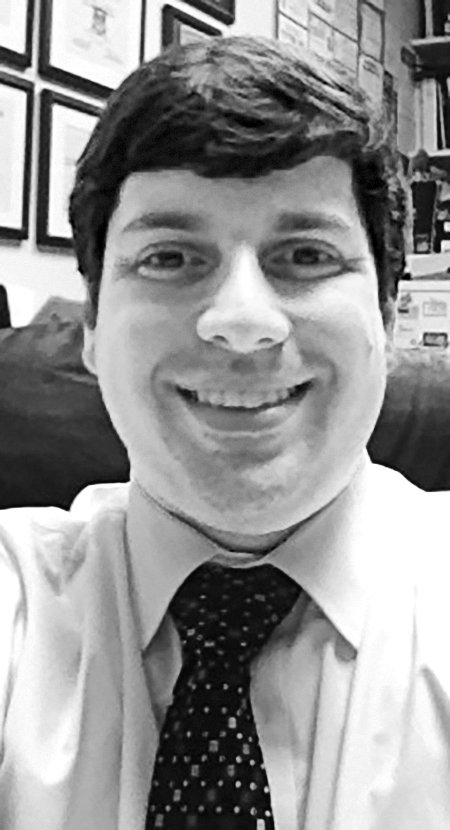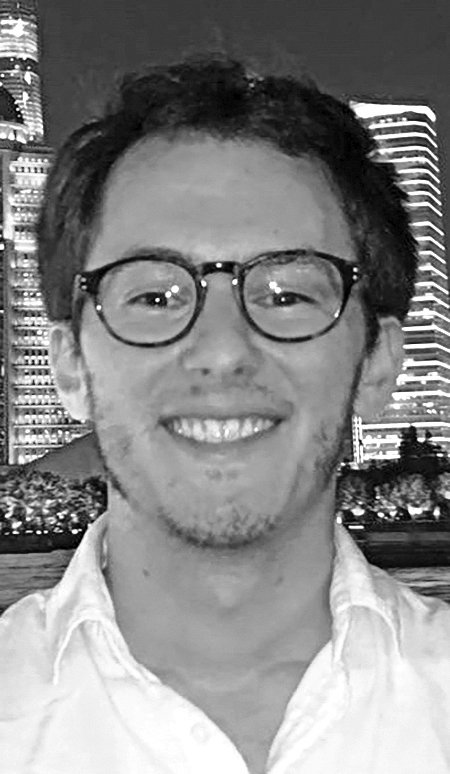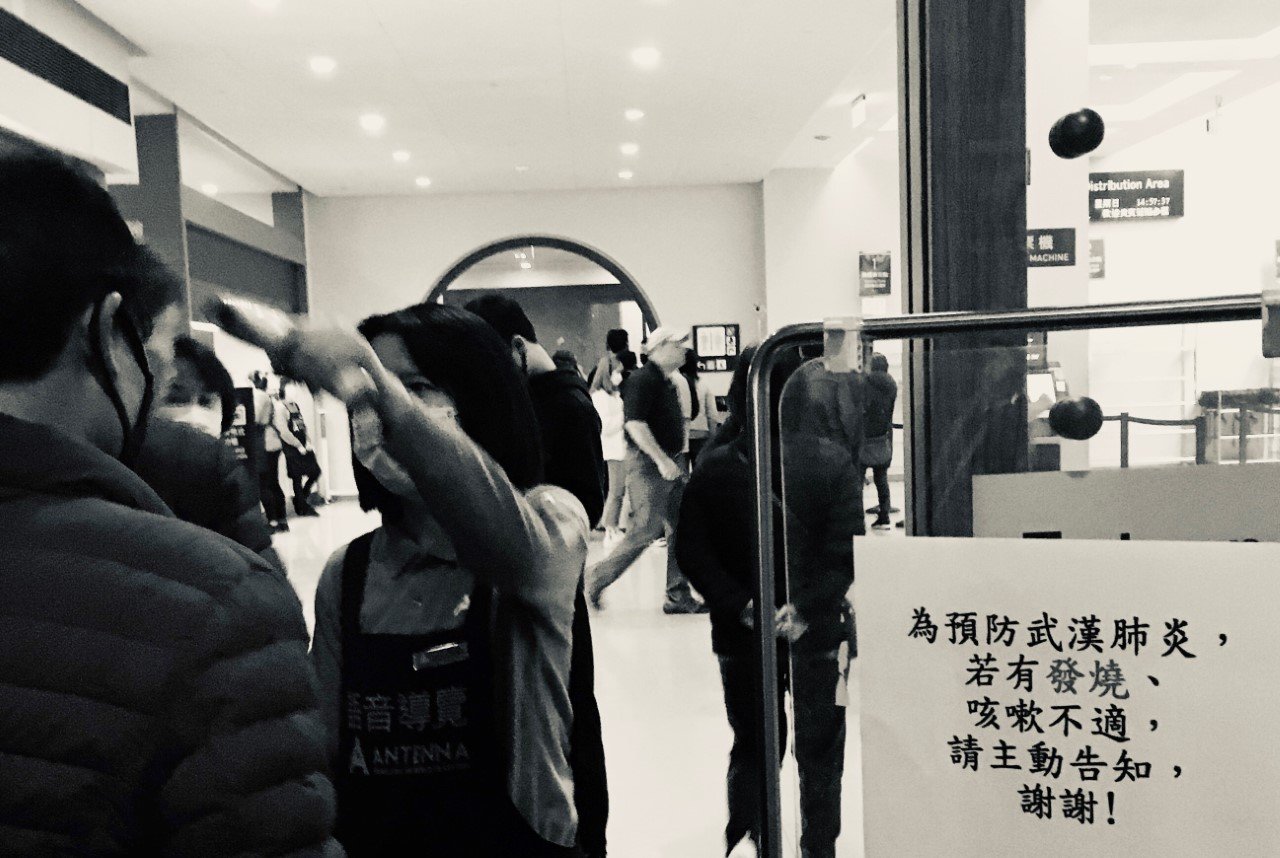How is the coronavirus impacting your life?
The coronavirus pandemic has impacted virtually every aspect of our lives, so we felt it was the right topic for this month's "The Conversation."
"The Conversation” features two perspectives on a single topic that we feel has meaning to our community. We’ve asked two community members to share their perspectives on coronavirus and how it has impacted them. We didn’t tell them what to write, and we had no idea what the outcome would be. We chose people from divergent parts of our community. We only asked that their commentary be limited to 750 words.

Preserving our dignity in troubled times
From a funeral director's perspective
“Look for the helpers. You will always find people who are helping.” – Fred Rogers
As I sit at home in quarantine, like millions of others around the world who are immunocompromised or at high risk for contracting COVID-19 for other reasons, I think about the many twists and turns our lives are taking.
On a personal level, I’m enjoying more time with my wife, our 16 year old and our 3 year old. We make meals together, play board games, wash our hands together, listen to music together, do our best to avoid touching our faces, play in the backyard, wash our hands again, take walks in the evenings through the empty streets of our neighborhood, wash our hands again upon returning home, and maybe watch a movie together before we say the Shema at bedtime with the kids. Somewhere in there, we call or text family and friends to see how everyone is doing and to stay connected.
On a professional level, I notice the changes even more. One of the things I love best about my job as a funeral director is meeting new people and getting to hear the stories of people’s lives. I cherish the trust that a family gives me when I take their loved one under my care. I really like being able to help people on a very personal level.
Now that we are social distancing, I don’t meet everyone in person, but I can still listen, and I can still serve the community. I’m keeping up with information from the Centers for Disease Control, the World Health Organization, the Rhode Island Funeral Directors Association, the governor’s office, Kavod (the national independent Jewish funeral directors association), the Board of Rabbis, synagogues in Rhode Island, every city and town hall in the state (I personally called them regarding attaining death certificates in a timely and safe manner), the local and national news, Jewish Rhode Island and other sources so we can maintain best practices and have the most current information to safely and properly serve our families.
Recommendations and regulations keep changing as we learn more, so keep in mind that the following list of changes was in effect when I wrote this, but the situation is fluid:
• All funeral services must be graveside.
• Register books may not be used.
• Up to five people can attend. Clergy, the funeral director and minimal staff my attend, but must stay 12 feet from the mourners.
• Clergy and family must wait in their vehicles until the casket is lowered and the cemetery staff has moved away from the gravesite.
• All shoveling of the earth is to be done by cemetery staff only. Besides the possibility of spreading germs via the shovel, the more likely vector of transmission would happen during the exertion of shoveling. People breathe harder and more often when exerting themselves and the air doesn’t have time to clear between each person at the gravesite.
While it is a great mitzvah to take care of loved ones, we are also prohibited from self-harm and harming others. We at Shalom Memorial Chapel make sure a director is there watching as an agent for the family to make sure the grave is closed up properly.
For shiva, we are suggesting phone calls or video chats at specific times, rather than congregating in groups.
We at are trying to be proactive about mitigating the effects of COVID-19 while serving the community. Among other things, we are making a contribution to the Louis & Goldie Chester Full Plate Kosher Food Pantry and we are donating fresh yarmulkes and veils to all the synagogues in Rhode Island once they reopen.
We understand that it is never easy for families that have suffered a loss, and these necessary changes certainly don’t make things any easier. As always, we are dedicated to doing whatever we can to make this difficult time as comfortable as possible for families in a respectful and dignified manner.
During this time of worldwide crisis, when everyone is physically apart, I have never been more aware of how interconnected we really are. Everyone is coming together to help stop the spread of COVID-19.
People from every walk of life: Nurses and doctors who are on the front lines, determined to help people, even at risk to themselves and their families; people who send out messages on Facebook offering to shop for those who are at risk or can’t make it out; friends calling to ask if we need soap or toilet paper, among other necessities that are in short supply; people everywhere offering help and services to strangers, all of them sharing the common thought of helping others.
I always look for the helpers. It gives me hope.
ADAM G. SMITH is the director of Shalom Memorial Chapel, in Cranston. He is on the disaster preparedness committee for the Rhode Island Funeral Directors Association.

Home, safe and sound – and grateful
What was it like in China when the outbreak was happening?
Shanghai, Jan. 23
The day before the Lunar New Year holiday began in China, I went into my Shanghai office, where I had been working as a consultant for the last 18 months. While at work, I received a breaking news update: the entire city of Wuhan would be sealed off and quarantined to slow the spread of the novel coronavirus.
One of my colleagues contacted a friend in Wuhan, who would be unable to leave the city, and called another friend, who was raised in Wuhan but would not be able to go home. Sealing off a city so large was unprecedented, and was especially shocking so soon before the holiday.
Wearing one of the last N95 masks I had left, which I had on hand for Shanghai’s more polluted days, I left the office and rode the subway to a shopping mall to buy supplies for a holiday trip to Taiwan. I was the only passenger in the subway car, and the mall was almost completely deserted.
All major cities in China typically slow down in advance of the holiday. Shops close and people return to their hometowns. So it was normal to see fewer people out. But even taking that into account, the city felt eerily quiet. Shanghai’s first coronavirus case had been confirmed earlier in the week, and people quickly realized that the outbreak would be at least a national, rather than a regional, crisis.
Taipei, Jan. 30
In the week after I arrived in Taiwan, the number of confirmed coronavirus cases in China increased exponentially, and a growing number of cities and provinces issued “stay at home” orders. In Taipei, the capital of Taiwan, shops seemed to reopen as usual after the Lunar New Year, but on the 30th, I went into seven pharmacies, all of which were already sold out of hand sanitizer. Earlier in the week, I had my temperature taken at the entrance to the National Palace Museum.
Friends and colleagues in Shanghai were holed up at home, and planned to stay there until the city had “flattened the curve,” although I would not hear that exact phrasing for another month, and in another part of the world. There was deep concern and anxiety over how quickly the coronavirus ground life to a halt across China, and much solidarity with Wuhan, where the outbreak was most severe. This was evident online, and friends said the same.
The virus blanketed the news in Taiwan and was the leading topic of conversation, but all the tourist sites on my itinerary remained open. With fewer than 10 confirmed cases in the nation, I had yet to hear anyone urge social distancing. I was grateful to be there, instead of quarantined alone in my Shanghai apartment.
New York City, Feb. 2
I disembarked at John F. Kennedy airport on the evening of the Super Bowl, with around 300 other passengers – all of us wearing masks. When most people around you are wearing a mask, choosing to join them does more than contain the spread of a virus: It gives you a sense of camaraderie, and indicates to those around you that you take the situation seriously.
The 14-hour flight was not enough to describe the distance we had traveled. As we followed signs for customs, we merged with passengers from other flights. Some who saw our masks gazed at us suspiciously. It had been 12 days since the first coronavirus case was confirmed in the United States. The virus was here in America, but for too many, the threat did not yet seem real.
While my flight was in the air, the U.S. Department of Homeland Security announced that all direct inbound flights from China would be routed to eight airports, JFK included. In the terminal, I found Customs and Border Protection staff scrambling to adjust to changing regulations, while some expressed confusion over how to handle flights from Taiwan. After more than an hour of questioning (have you been to Wuhan? What about Hubei?), I was cleared to leave. No one took my temperature or recommended that I self-isolate.
Providence, March 11
As the 1,000th coronavirus case in the U.S. was confirmed, President Donald Trump gave an Oval Office address. I had already been concerned about how badly the U.S. might be impacted, knowing how rapidly the virus had spread in China. Soon after that address, more people began to share that concern.
Friends around the country were telling me that they’d been instructed to work from home, while others lost their jobs altogether. Seemingly everyone began using Zoom, while “social distancing” entered our parlance and restaurants transitioned to take-out and delivery only.
I avoided quarantining in Shanghai by opting to fly to the U.S. from Taiwan, only to find myself in a similar situation in Providence just weeks later. Back in January, reading the news from Wuhan was heartbreaking, and imagining Providence as empty as Shanghai seemed impossible. But trying to do so helped me empathize with people here whose lives had been flipped completely upside down.
Today, an outbreak here is the reality, no imagination required. The number of cases in the U.S. has grown more than 100 times over since the president’s address, and the situation is undoubtedly as serious here now as it was in China in February.
China announced at the end of March that it would be barring all non-citizens from reentry, including those with valid residence permits, like myself, meaning I have no way back to Shanghai for the foreseeable future. But despite these extreme circumstances, I have much to be grateful for.
DAVID BRENMAN grew up in Providence and has lived in China for three years.








